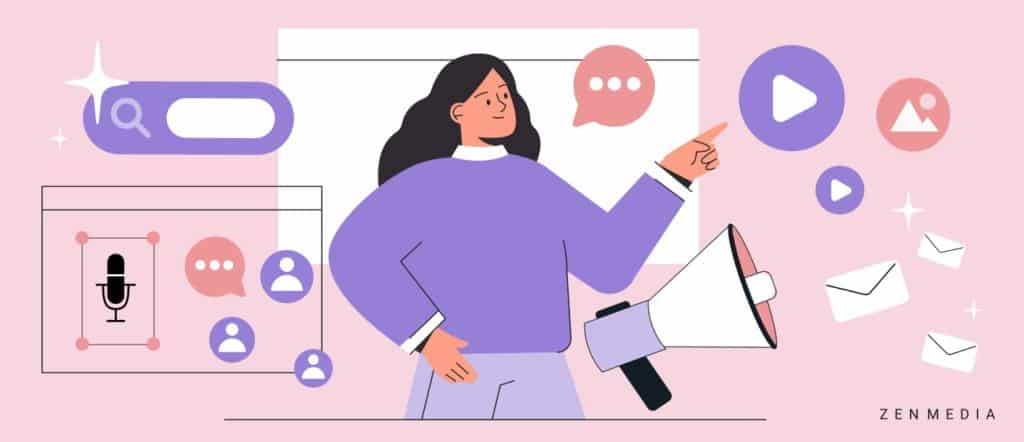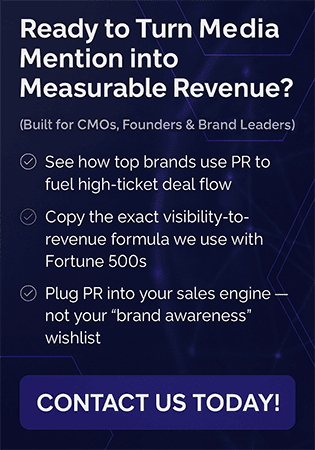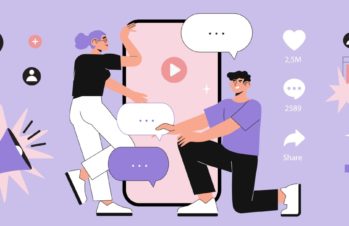Influencer marketing has been taking the B2B world by storm as one of the many adoptions migrating from the B2C space. The influencer marketing market is expected to surpass $22 billion in revenue by the end of 2022—a figure even higher than social media marketing.
Related post: B2B and B2C Converge: How B2C Trends Are Influencing B2B Marketing PR
Influencer marketing—or leveraging subject-matter experts, in B2B-speak—is a great way to connect authentically with your audience because the content comes from a source they know and trust (the influencer/expert).
Influencer marketing is also one of the top five marketing channels of the year, according to HubSpot’s State of Marketing Trend Report 2022. From celebrity endorsements to unboxing videos, influencer marketing has evolved quite a bit over the last few years, with 68% of marketers working with influencers in some capacity. Now, influencers represent a wide range of creators who build a rapport with engaged audiences.
What is B2B influencer marketing?
B2B influencer marketing varies depending on the partnership, but in general, it’s when a business partners with a creator—or “influencer”—to promote products or services. Anything from having an influencer beta test and review your new product to having them co-host a Q&A can be an effective B2B influencer marketing tactic. TopRank Marketing’s 2022 B2B Influencer Marketing Research Report shows that 86% of respondents said their B2B influencer marketing campaigns were either moderately or very successful.
Micro-Influencers
While brands reported annual influencer marketing budgets of $50K to $500K+, companies don’t need to invest thousands of dollars into influencers with huge followings. B2B influencer marketing is about reaching the right audience with the right message through the right medium. So “go big or go home” doesn’t apply here. In fact, research shows that some of the best influencers (with the biggest conversion rates for brands) have a slightly smaller amount of followers (think under 100,000) with good engagement rates—and 41% of marketers report even working with nano influencers (under 10K).
Related post: Is Less More? Going Micro Over Macro
How to Evaluate Influencers and Creators
So, if size isn’t the best judgment factor, what is? The key to influencer marketing is adding value to your audience through a trusted source. When deciding which creators to approach, consider their content quality, engagement rate, value alignment, and expertise in your industry.
- Content Quality
First and foremost, B2B influencer marketing is dependent on quality content that gives the consumer what they want or need from your brand. When you partner with an influencer or creator, you want it to be a mutually beneficial relationship with an agreement on content quality standards. Plus, if a prospect sees your brand associated with a low-quality creator, they may begin to associate your content—and product or service—with being low-quality. Remember: any content marketing strategy starts with consideration for your audience first. Know thy audience. Produce good content.
- Engagement Rate
Before signing a contract with an influencer, ask about their engagement rates. How many of their followers like, comment, and respond to their posts? How many click-throughs do they get on an average post?
- Value Alignment
Like the quality of your content, the values between you and the creator you partner with should be aligned. If your opinions are known for being at odds with one another…well, that may be a provocative partnership that sparks conversation—but it also leaves a lot of room for reputational risk and controversy.
In general, it’s important to agree on key values—what drives each of you? What opinions about your shared industry do you both hold? Do your visions of the industry and goals for the future complement one another? A perfect value-aligned B2B influencer marketing partnership means a significant overlap in the audience of the brand and the creator. You may think “No! I want my brand in front of new people!” No matter who you partner with, your brand will be exposed to some new people. But in B2B, the buyer’s journey is long, with the average B2B buyer needing 27 touch points before converting. So, really, you want an audience as close to your own as possible.
- Expertise in Industry
Last, but certainly not least, you need to evaluate your potential influencer partner’s expertise in your industry. Are they well-respected? Do they have any special certifications, degrees, or awards? How are they notable to your audience? What level of expertise does your audience believe they have?
B2B Influencer Marketing Platforms and Tools
Every good B2B influencer marketing strategy should capitalize on the appropriate platforms and technology. The right influencer marketing technology can help brands identify influencers, nurture relationships, measure success, and more. However, nearly 40% of marketers don’t yet use any influencer marketing tech in their campaigns. If you are still relying on spreadsheet-based influencer marketing tracking, you will end up wasting resources. Using a B2B influencer marketing platform like Cision, Onalytica, or BuzzSumo can help streamline campaigns and measure impact as you go, allowing for more opportunities to pivot and optimize.
While knowing your tech and marketing platforms is important, 55% of B2B companies with 500 to 1,000 employees indicated that working with an agency to identify influencers and manage their influencer marketing was more effective than software. If you don’t have a dedicated influencer marketing employee to manage those relationships and track metrics, outsourcing might be your best option.
Key B2B Influencer Marketing Strategies
- Build relationships and community.
With the rise of influencer marketing for B2Bs, content creators are in higher demand than ever before, making top-tier influencers harder to secure. While many B2Bs don’t need an A-list celebrity endorsement, it’s still important to nurture your relationships with creators over time to build a community.
- Don’t underestimate the power of internal influencers.
Employee and executive influencers are not often thought of as traditional influencers, but the perception of your brand internally is just as important—if not more so, in some ways—as your external brand perception. Keeping employees happy, engaged, and believing in the company’s core values and their execution helps keep costs down by raising the retention rate and simultaneously boosting brand credibility and authenticity—even externally.
- Integrate tech seamlessly and appropriately.
Like we mentioned above, knowing what tech you need and integrating it into your campaign will save you time and money. But it’s also essential if you have any hope to scale your B2B influencer marketing strategy. Whether it’s a subscription to a tracking and measurement tool or retaining an agency, your influencer marketing campaign should be set to run from the get-go, because, in reality, it should be always on.
- Lean towards always-on campaigns.
An always-on campaign is exactly what it sounds like: a B2B influencer marketing campaign that never ends. It costs money to end a campaign and begin a new—identifying new influencers, building a relationship, and maintaining contact information. Like a lack of appropriate tech, it simply isn’t scalable. Creating long-lasting relationships with internal and external influencers builds trust and increases campaign effectiveness.
Of all the components that create a good B2B influencer marketing digital campaign, B2Bs report that the top challenge they face is a lack of documented strategy.
Influencer marketing is a strategy, not a tactic. And, to be successful, a thorough strategy with defined messaging and tactics—videos, podcasts, blogs, etc. must be developed. If you’re looking for help developing a B2B influencer marketing campaign for your company, let’s chat. We’d love to help.





